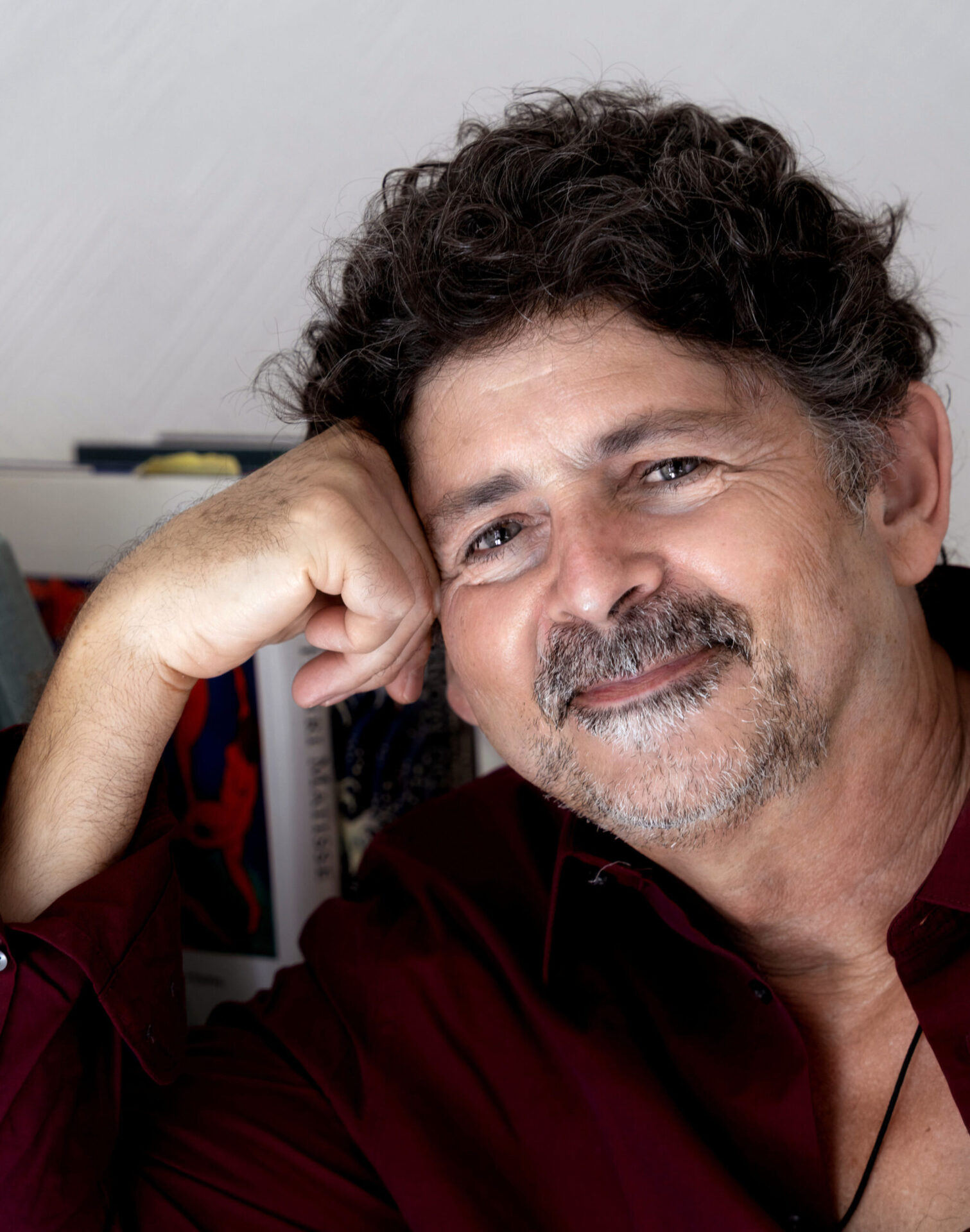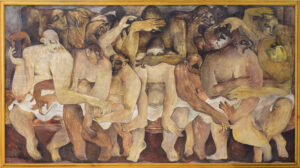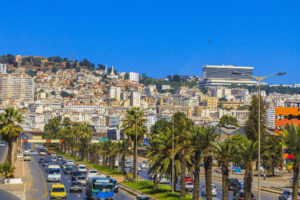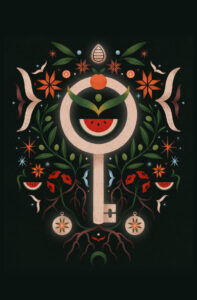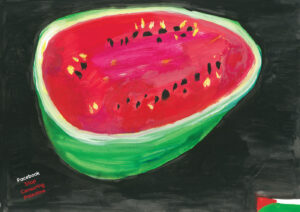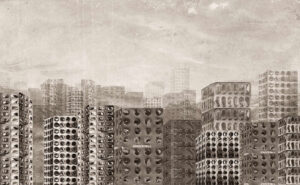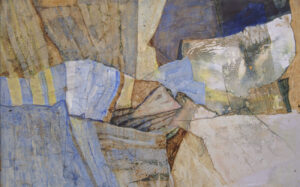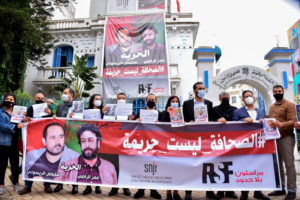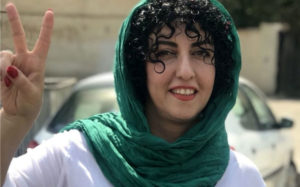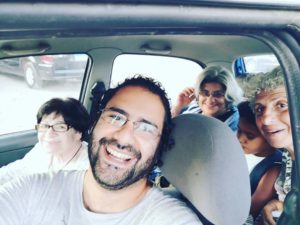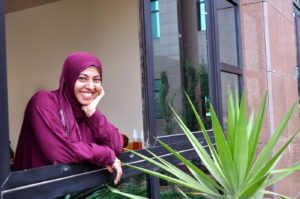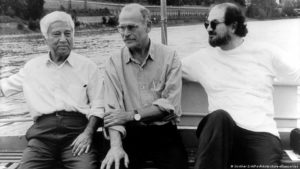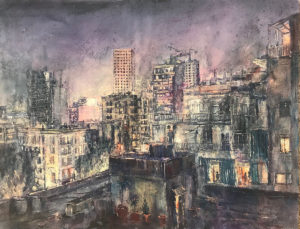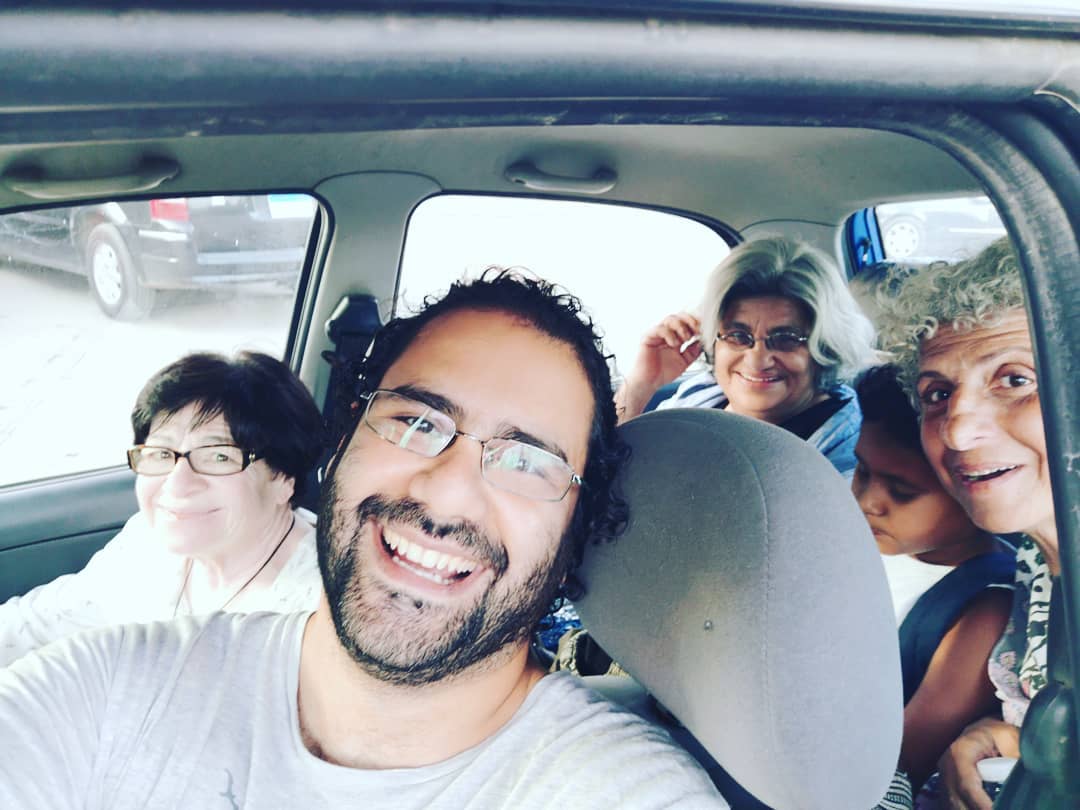
Abd El-Fattah’s essays are published by Seven Stories Press.
Jordan Elgrably
Only a few hours ago, Egypt’s most famous political prisoner drank his last glass of water. After a months-long hunger strike in which Alaa Abd El-Fattah consumed only 100 calories per day, and after years of languishing in prison, El-Fattah is pulling the plug on his captor, President El-Sissi. His life literally hangs in the balance, for in the next 48 hours if Egypt’s dictator doesn’t give the order for El-Fattah’s release, he will die.
As his devoted sister Sanaa tweeted, “My brother just had his last glass of water in prison. Please keep his story alive, it’s not over. He can be saved. This afternoon I’m flying to Sharm, I have a civil society pass. The Egyptian regime claims civic space exists in #COP27. I’ll be testing that.”
Mona Seif, human rights activist, worries that Sanaa, too, will wind up behind bars.
And no less than 15 Nobel Prize for Literature laureates have just signed a letter, calling for El-Fattah’s release, the body of which reads:
As your country’s delegates prepare for the COP27 International Climate Conference in Egypt we, as Nobel laureates, write to urge you to devote part of your agenda to the many thousands of political prisoners held in Egypt’s prisons – most urgently, the Egyptian-British writer and philosopher, Alaa Abd El-Fattah, now six months into a hunger strike and at risk of death.
Alaa has spent the last ten years — a quarter of his life — in prison, for words he has written.
As Nobel laureates, we believe in the world-changing power of words — and the need to defend them if we are to build a more sustainable, genuinely fairer future.
We urge you to use the opportunity that is now in your hands to help those most vulnerable, not just to the rising seas, but those imprisoned and forgotten — specifically in the very country that has the privilege of hosting you. A just transition cannot solely be concerned with bringing down emissions, but must seek a re-construction of the status quo away from exploitation and coercion. If the world’s leaders gather in Egypt and leave without even a word about the most vulnerable, then what hope can they have? If COP-27 ends up a silent gathering, where no one risks speaking openly for fear of angering the COP Presidency, then what future is it that will be being negotiated over?
We understand well what is at stake with the negotiations and their urgency. But we write to remind you that, ultimately, it is not through compromise with authoritarianism that crises are averted. We believe that it is through more democracy, more transparency and more civic participation that the truest route to sustainability lies. Let us not use the excuse of pragmatism to avoid the hard questions.
We ask you to use your plenary address to speak the names of the imprisoned, to call for their freedom, and to invite Egypt to turn a page and become a true partner in a different future: a future that respects human life and dignity. We ask you use bilateral meetings to support the call from Egyptian and international human rights groups for a prisoner amnesty; to make your support a standing agenda item.
We ask you, in your address, to bring the voices of the unjustly imprisoned into the room. Alaa Abd El-Fattah’s powerful voice for democracy is close to being extinguished, we ask you to breathe life into it by reading his words. These, from 2019, about dealing with the climate crisis, are particularly resonant:
The crisis is not one of awareness, but of surrender to the inevitability of inequality. If the only thing that unites us is the threat, then everyone will move to defend their interests. But if we collect around a hope in a better future, a future where we put an end to all forms of inequality, this global awareness will be transformed into positive energy.
Hope, here, is necessary. Our dreams may not come to pass, but if we submit to our nightmares we’ll be killed by fear before the Flood.
Indeed, we cannot surrender to the inevitability of inequality. We cannot yield the possibility of a different future to an amoral managerialism of crisis. We must ensure that our words are spoken in defence of the most vulnerable — because we know that our silence puts them at greater risk.
Yours Sincerely,
Svetlana Alexievich
J. M. Coetzee
Annie Ernaux
Louise Glück
Abdulrazak Gurnah
Kazuo Ishiguro
Elfriede Jelinek
Mario Vargas Llosa
Patrick Modiano
Herta Müller
Orhan Pamuk
Roger Penrose
George Smith
Wole Soyinka
Olga Tokarczuk
A few months ago, Alaa Abd El-Fattah published, from prison, a collection of essays entitled You Have Not Yet Been Defeated (Seven Stories Press) which the writer Naomi Klein calls “living history.” We published a review of You Have Not Yet Been Defeated in TMR recently by Fouad Mami (“Alaa Abd El-Fattah—the Revolutionary El-Sissi Fears Most?“). El-Fattah continues to inspire freedom-loving people around the world, but he does not have long to live, unless Egypt’s authorities see him free.
Free Alaa, now.
Editor-in-chief, TMR



